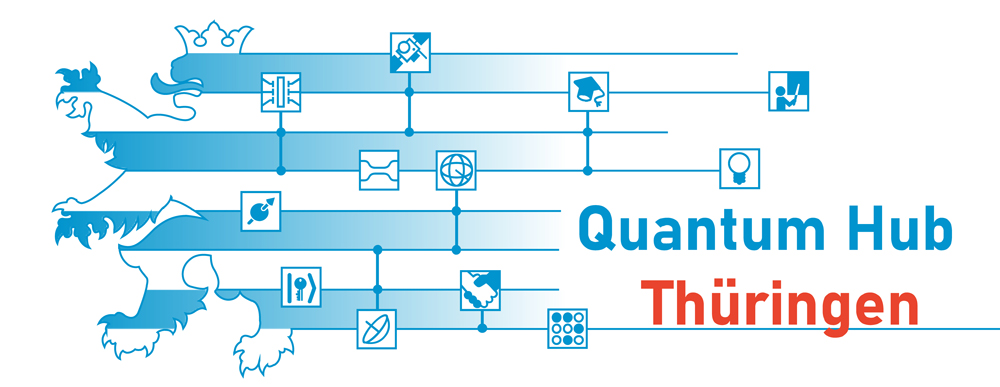Erfurt / Jena / Ilmenau
Six million euros for quantum technologies in Thuringia: New research network “Quantum Hub Thüringen” launched
Thuringia wants to become a high-tech location for quantum technologies. To this end, the Free State of Thuringia is contributing six million euros to fund a new center of excellence for quantum technologies. At a digital inauguration event, Thuringia's Minister of Science Wolfgang Tiefensee gave the go-ahead for the “Quantum Hub Thüringen” today in Erfurt.
Quantum technologies are a key to the future: They will enable researchers to develop highly efficient technologies which will greatly surpass the performance of conventional systems. By controlling individual quanta, i.e. the smallest light and energy building blocks, disruptive applications will be made possible, for example, in the field of data processing (quantum computers), communication (tap-proof communication) and in analysis and measurement technology (quantum imaging, quantum sensor technology).
For many years now, Thuringia has repeatedly laid essential cornerstones for these groundbreaking innovative technologies. In order to pool their expertise and know-how in the field of quantum research, eleven Thuringian research institutions have now joined forces to form the “Quantum Hub Thüringen”. The goal is for Thuringia to become a high-tech location for quantum technologies and thus a significant part of a European quantum industry by targeting the alignment of scientific and economic excellence. The Free State of Thuringia is funding the new competence network with six million euros over a period of 32 months.
Tiefensee: “There is no way around Thuringia”
“Thuringia recognized the potential of quantum technologies early on and has been strategically investing in the development and expansion of its expertise for several years,” said Wolfgang Tiefensee at the virtual opening ceremony at the Fraunhofer Project Center MEOS in Erfurt. The state will invest around 35 million euros in funding quantum research, including ongoing projects, until the end of 2024. For example, nine research groups have been funded in this field since 2014 - including the “InQuoSens” innovation center in Jena and Ilmenau in 2017, as well as the quantum application laboratory, which opened in Erfurt in 2020. In addition, there are currently ongoing federal projects worth around 60 million euros.
“With the 'Quantum Hub', we are now taking the next important step toward becoming a nationally significant location for quantum communication,” he continued, “Secure quantum communication is a future topic in which Thuringia, with its strong photonics and IT industries and the research groups at the Friedrich Schiller University in Jena and the Fraunhofer Institute for Applied Optics and Precision Engineering IOF, already plays a leading role in Germany. Our aspiration is that in the future there will be no way around Thuringia in this field.“ The Free State of Thuringia also intends to strongly support the long-term establishment of a secure, nationwide quantum network and will set up the first test tracks for quantum communication in the region.
Prof. Dr. Andreas Tünnermann, director of Fraunhofer IOF and spokesman of the “Quantum Hub Thüringen”, adds: “Quantum communication will secure the sovereignty of our data in the future - an increasingly important fundamental right of our citizens in the digitally networked world. Thuringia is currently an important pioneer in establishing infrastructures for the development and testing of quantum-based technologies and applications in real communication networks and will thus play a central role in the Federal Republic of Germany and the European Union in the future.”
